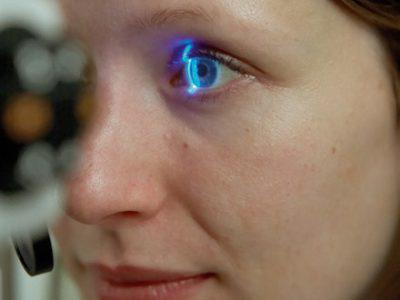It’s the middle of the night and you’re thirsty, but the first thing you need to do before you walk into the kitchen is figure out where you left your eyeglasses. Or you go to your favorite restaurant, and the waiter hands you the menu and you start rifling through your handbag for your readers.
If you’re among the 195.3 million Americans who wear eyeglasses or contact lenses, you’re probably all too familiar with scenarios like these. If only you could restore your vision, so you could dispense with your readers, prescription eyeglasses, or contact lenses.
The good news is you can. In this blog, our highly skilled providers at the Tayani Institute give you the scoop on LASIK surgery and Visian ICL surgery and how they can correct your eyesight.
The differences between LASIK surgery and ICL surgery
Chances are you’re more familiar LASIK surgery than ICL surgery. Both are FDA-approved types of refractive surgeries, which are designed to address problems with your vision. The differences are in how your provider performs the surgery.
LASIK surgery
LASIK surgery, or laser-assisted in situ keratomileusis surgery, is the most popular laser refractive surgery. Providers correct refractive errors by surgically altering the shape of the cornea, the clear front part of your eye.
ICL surgery
ICL surgery, or visian implantable collamer lens surgery, is a little more involved. ICL surgery fixes vision problems using an artificial lens composed of plastic and a collagen material. Your provider places the collamer lens between the colored part of your eye, called the iris, and your eye’s natural lens.
Treating vision issues
Astigmatism, farsightedness, and nearsightedness are three of the most common refractive errors. Here’s how ICL surgery and LASIK surgery stack up on treating them.
Astigmatism
Astigmatism is caused by a misshapen or unequally round cornea. This physical anomaly prevents the light that comes into the eye from bending properly. As a result, people with astigmatism can experience blurry vision. LASIK and ICL surgeries can both fix this condition well.
Farsightedness
With farsightedness, objects in the distance appear much clearer than objects up close. For instance, if you have a window seat at your favorite restaurant and are looking out the window, a sign across the street may be a lot clearer than the menu right in front of you. As with astigmatism, LASIK and ICL surgeries can both fix this condition well.
Nearsightedness
With nearsightedness, also called myopia, you can see clearer up close, but distant objects are blurry. When it comes to this condition, the severity of your myopia will determine if ICL surgery may be the better treatment option over LASIK surgery.
While LASIK surgery can effectively address mild and most moderate levels of myopia, it’s often ruled out for severe levels of myopia. That’s where ICL surgery comes in. If you were classified not to be a good candidate for LASIK surgery due to the severity of your nearsightedness, you may be an ideal candidate for ICL surgery.
If you’re ready to ditch your prescription eyeglasses or contact lenses for good, the professionals at Tayani Institute can help. To learn more, book an appointment online or over the phone today.


